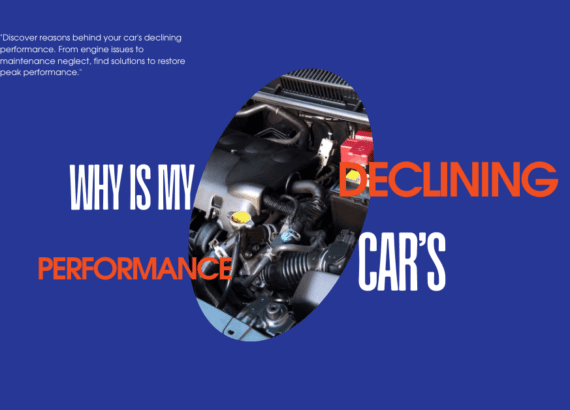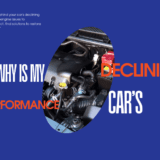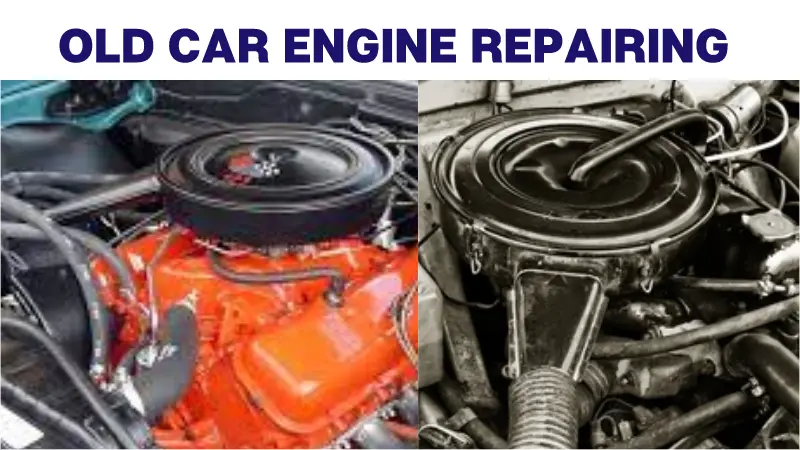What Happens if You Put Diesel in a Gas Car?

Diesel and gasoline are two types of fuel specifically designed for different engines, and mixing them up can lead to a unique automotive mess. As someone who’s been around vehicles for a good chunk of my life. I’ve witnessed a driver or two not paying enough attention. At the pump and making the mistake of putting the wrong fuel into their tank.
Typically, fuel pumps are clearly labeled, and the diesel nozzle is usually a vibrant green to differentiate it from a gas nozzle. Moreover, a vehicle’s gasoline filler neck is designed to be incompatible with a diesel fuel nozzle, but occasionally, whether by force or distraction, diesel ends up in a conventional gasoline-powered vehicle.
This mix-up can have severe consequences for the vehicle’s health and operation. Unlike gasoline engines, diesel engines compress air to a high temperature and then inject diesel fuel into the compressed air, where the heat ignites the diesel.
Gasoline engines, on the other hand, mix air and diesel vs gasoline together before compressing them and igniting them with a spark plug. Introducing diesel into a gasoline engine disrupts this precise process. Leading to reduced engine performance, and in worst cases, it can cause significant damage that results in costly repairs.
The diesel dispenser at a station is meant only for vehicles specifically designed to handle diesel; mistakenly using it for a gasoline engine underscores a simple distraction with potentially complex outcomes.
Gasoline vs. Diesel: A Deep Dive into Fuel Dynamics
- Gasoline vs diesel, both derived from crude oil, exhibit significant differences in physical properties; gasoline is thinner with a distinct odor, whereas diesel presents in a thicker state, akin to lightweight oil, affecting fluidity.
- These differences critically influence fuel compatibility with various vehicles such as passenger cars, SUVs, light-duty trucks, as well as heavy-duty trucks, semis, buses, and boats, each designed for specific torque ratings and low-end pulling power.
- Gasoline engines rely on spark plugs to ignite the fuel. Benefiting from a mixture that includes up to 10-percent ethanol, a flammable organic compound used as a biofuel additive to make the fuel even more combustible.
- Conversely, diesel engines operate on pressure and compression, sometimes with the help of a glow plug in cold conditions, to become adequately heated up, squeezed, and lit with fire. The high autoignition temperature of diesel indicates it is not as readily combustible as gasoline, highlighting the necessity of engines being designed to operate with a specific fuel-type.
- Incorporating diesel into a gasoline engine could result in damage to both the fuel system and engine components due to inappropriate combustibility, compression requirements, and fluidity, underscoring the engines’ attempts to work differently based on the fuel used.
What happens if you put diesel in your gas car?
Having accidentally filled my gas car with diesel during a particularly hectic day, I faced a situation many might dread. The moment diesel mixes into a car’s fuel system designed for gasoline, problems are inevitable.
The engine and other crucial parts receive the wrong fuel from the tank, leading to an array of issues. You can expect difficulty starting the car, reduced power, and emitting smoke from the exhaust. The catalytic converters may struggle. Unable to properly process the unburnt fuel and particulates due to the disparate combustion properties between diesel and gasoline.
The good news is, accidentally adding diesel to a gas car doesn’t always destroy the engine or require immediate replacing of parts. The extent of the problem will heavily depend on whether you’ve added diesel on top of a nearly full tank of gasoline or filled an empty tank entirely with diesel. A small quantity of diesel in an individual car’s tank might not exhibit immediate problems. But as the larger proportion of diesel is introduced, the car might fail to start or run properly.
In my experience, the car began to drive with difficulty. Exhibiting signs like reduced power and emitting smoke from the exhaust, indicative of the diesel’s different combustion properties potentially causing the engine and catalytic converters to fail. For those facing a big problem from a mistake at the pump. It’s important to remember that the situation and symptoms your car may exhibit depend significantly on the proportion of diesel introduced.
How much will it cost to fix?
Accidentally filling a gasoline car with diesel vehicle work fuel can lead to significant complications and repair costs. Depending significantly on the vehicle’s type and the severity of the mistake. Luxury cars, known for their more sophisticated fuel systems, might incur higher expenses to rectify this error.
Costs can range from a few hundred dollars for draining and flushing the system to potentially thousands if parts like fuel injectors, fuel pumps, and catalytic converters require replacement due to damage. Additionally, the need for towing to a mechanic can further increase the financial burden. With the total expense heavily influenced by the mechanic’s labor rates and the time needed to address the specific make and model of the car.
The importance of promptly addressing the issue of diesel fuel in a gasoline car’s tank cannot be overstated. As acting quickly can significantly reduce the extent of the damage and, consequently, the repair costs.
A quick response to drain the tank and consult a mechanic can prevent the fuel system from being extensively affected by the incorrect fuel type. This immediate action helps avoid more severe damage. To critical components, potentially saving thousands in repairs that could result from prolonged exposure to diesel in a gasoline-focused system.
How to avoid putting diesel in a gas car

Putting diesel in a gasoline engine by mistake is a costly error that can lead to significant repair expenses. Especially for luxury cars with complex fuel systems. Potentially necessitating the replacement of fuel injectors, fuel pumps, and catalytic converters. The costs associated with this mistake can vary widely, from a few hundred dollars for draining and flushing the system to thousands. Depending on the severity of the damage and the car’s make and model.
In addition to parts replacement, towing the vehicle to a mechanic for repairs can further increase the financial burden. With the total cost heavily influenced by the mechanic’s labor rates and the time needed to fix the issue. Quick action in draining the tank and consulting a mechanic can mitigate the extent of the damage and repair costs. Emphasizing the importance of a swift response to prevent the diesel from causing more severe damage to the gasoline-focused fuel system.
What Should You Do if You Realize You’ve Accidentally Put Diesel Fuel in Your Gas Tank?
The moment you realize you’ve accidentally pumped diesel fuel into your gas tank, immediate action is necessary. Leaving the diesel in might seem advisable if you’re unsure. But the best start is to not attempt to operate the vehicle under any circumstance. Doing so could cause the diesel to enter the fuel line and engine system, making the repair process more complicated and costly. Instead, the car should be towed to a garage for drainage right away.
In an ideal situation, a mechanic would open the gas tank, drain and empty the entire amount of the gasoline/diesel mixture. Then the tank is filled with gasoline and drained again to remove any remaining diesel. This process might require repetition to clear the tank of diesel contamination. If necessary, the tank is removed from the vehicle and drained. With the option of dropping the tank if diesel is still present.
The mechanic may then rinse the tank repeatedly with fresh gasoline to ensure all diesel fuel is washed out. Not draining the tank instantly and adequately can lead the tank to be dropped as a last resort, which escalates the complexity and cost of the repair job, significantly making the financial burden climb.
Conclusion
In conclusion, accidentally fueling a gasoline car with diesel is a mistake that brings attention to the critical importance of understanding the distinct characteristics and requirements of different fuel types. This mishap serves as a stark reminder of how a momentary lapse in concentration at the pump can lead to a host of complications for your vehicle. Ranging from reduced engine performance to potential severe damage necessitating expensive repairs.
The experience underscores the necessity of vigilance and the value of promptly addressing the error by consulting a professional mechanic. By taking swift action and ensuring the correct fuel for your vehicle. Drivers can avoid the costly and damaging consequences of this all-too-common error. Preserving the health and performance of their vehicles.
Whether it’s through more attentive fueling practices or understanding what to do in the aftermath of a diesel-in-gasoline scenario. Educational takeaways from such incidents can contribute to better vehicle maintenance and a more informed driving community.
FAQs
What to do if you put diesel in a gas car?
Gasoline engines are not able to combust diesel fuel. So you will only be able to travel a few miles before your engine shuts down. Your vehicle will need to be towed to a nearby Freehold service center so that the fuel system can be drained. The gas tank will need to be emptied first.
Will a little diesel hurt a gas engine?
While there will be a wide range of problems for individual cars and your individual situation. Most cars with a small proportion of diesel mixed into their gasoline may still run and drive. But they will exhibit symptoms like difficulty starting, reduced power, emitting smoke from the exhaust, and potentially causing .
What happens if you accidentally put gas in a diesel engine?
The fuel pump and fuel injectors fail due to gasoline’s inability to function as a lubricant. The engine will eventually stop running entirely, requiring substantial repair or replacement. You will naturally want to do what you can to avoid this catastrophic scenario.
How much diesel will ruin a gas engine?
Gasoline needs to have an octane rating of 87-91 to fit today’s car engines. Diesel fuel has an octane rating of 25-40. Mixing 2% diesel fuel into gasoline will lower the overall octane rating by 1 point. Getting 10% diesel contamination lowers octane by 5 points, which is enough to create problems in most engines.
Will 3 gallons of diesel hurt a gas engine?
If you only add a couple of gallons of diesel fuel to a gas tank that’s at least half full. The engine will usually continue to run but run poorly. But if you add a significant amount of diesel fuel to the gas tank, in most cases, the car will only run until the gasoline in the fuel lines is depleted.
How far can you drive with diesel in a petrol car?
How far you can drive depends on the quantity of diesel in the gas tank. If you put a small amount of diesel about 1/6 of the gas in the tank of a petrol car, it won’t cause damage. But if you put over half tank of diesel in a petrol car. The car may have to travel about 30 miles before stopping you on the road











